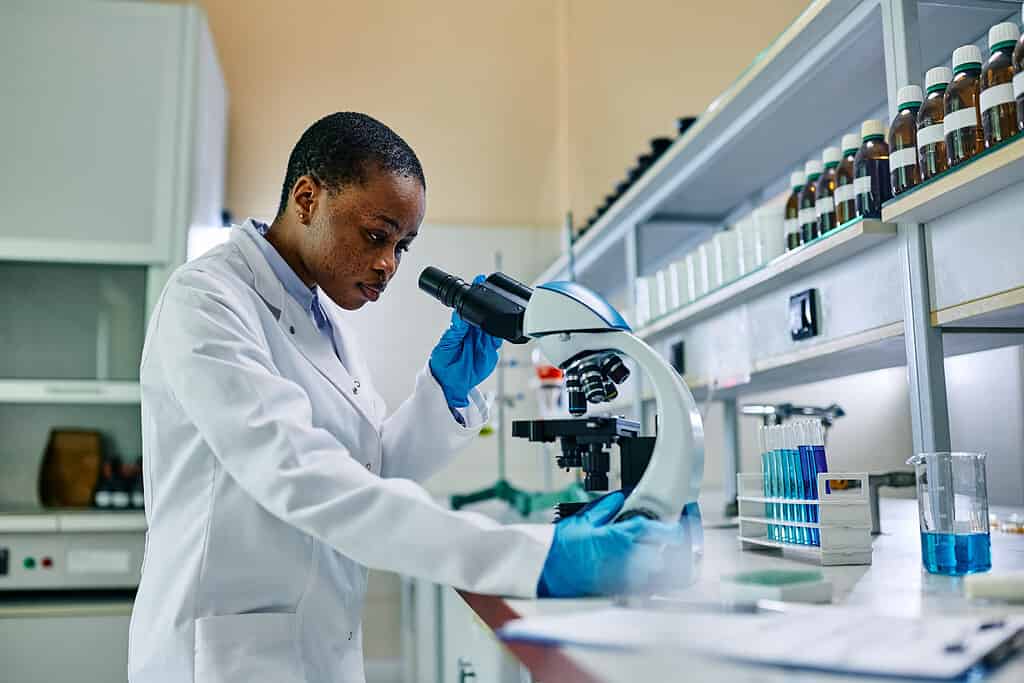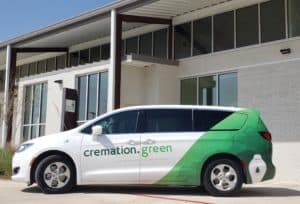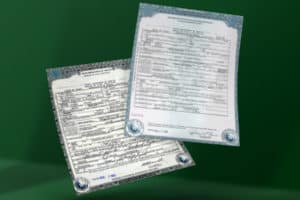When a person dies most of the time the cause of death is known. Either the person was in the hospital with an injury or illness, terminally ill under hospice care or had an accident that caused a death. In these instances no examination is needed to note the cause on the death certificate.
But 7-9% of deaths require an autopsy. And many more deaths are questionable, but the county medical examiner determines an autopsy isn’t needed or that only certain autopsy services should be performed. In those cases the family still has the option of enlisting the help of a private forensics institute.
Keep reading to learn about how a private forensic institute compares to a county medical examiner.
What is a County Medical Examiner?
The county medical examiner is a doctor with specialized death investigation training who runs the local medical examiner’s office. The medical examiner is appointed to this position by a governing body. They perform autopsies that are legally required to determine a cause of death and gather evidence. The autopsy process can include physical examinations, toxicology reports, lab sample analysis, medical record analysis and examining crime scene evidence.
RELATED READING: What’s the Difference Between a Medical Examiner and a Coroner?
What is a Private Forensics Institute?
A private forensics institute offers autopsy services that are performed outside of the county medical examiner’s office. These types of facilities are also called private forensics laboratories. These are independent operations that work directly with family members to assist county medical examiners, such as the Harrison County Institute of Forensics Sciences.
Private forensics institutes can also assist authorities with services like autopsies when a death occurs outside of the county lines. Private forensics institutes are also used if a county doesn’t have its own medical examiner’s office. This could be the case for counties with less than 1 million residents.
Services Provided by the County Medical Examiner vs. Private Forensics Institutes
Medical examiners and private forensics institutes are very similar in the services that they provide. The key difference is that one is serving in a formal capacity for the county government and the other could be working independently for a private party, usually a family member or the spouse of the deceased.
Medical examiner services include:
- Conducting death investigations
- Evidence preservation
- Body identification
- Forensic autopsies
- Forensic pathology
- Forensic anthropology
- Forensic imaging
- Toxicology reports
- Histology
- Morgue services
Private forensic laboratory services include:
- Private autopsies
- Second autopsies
- Forensics autopsies
- Toxicology reports
- Identification
- Forensic consultancy
- Expert witness – pathology
- Expert witness – medical malpractice
- Postmortem medical record review
- DNA analysis
Many private forensics institutes are full-service facilities that can potentially provide even more services than a medical examiner’s office. Just keep in mind that the findings of a private forensics institute aren’t necessarily official. The services also need to be provided by a board-certified forensic pathologist, which is the case when a medical examiner provides services.
Why Private Forensic Institute Services Are Used
You may wonder why a private forensic institute would be needed since there’s a county medical examiner’s office for handling autopsies and death investigations. It turns out there are a number of reasons why these types of services are sometimes desired by family members.
Below are some of the most common reasons private forensic institute services are used:
Medical Examiner Didn’t Perform an Autopsy
If the county medical examiner determines an autopsy isn’t needed, it isn’t done. Not knowing the cause of death for sure can be unsettling. Some people hire a private forensics institute to perform an autopsy simply because the medical examiner didn’t do one, and they want closure.
The Results of a Medical Examiner Autopsy Was Inconclusive
A family may also reach out to a private forensics institute if autopsy results were inconclusive or didn’t provide adequate information. A second autopsy can be done to provide a second opinion or may uncover something that was missed during the first autopsy.
The Autopsy Is Incomplete or Incompetently Completed
If the family believes that an autopsy is incomplete or that it wasn’t competently performed, they may want a second autopsy or at the very least a medical record review to verify the quality of the work.
There’s a (Potential) Medical Malpractice Lawsuit
If a family member died under the care of a medical professional that may not have acted appropriately and caused harm, then there could be grounds for a malpractice lawsuit. In these cases the family will often hire a private forensics lab to perform a forensics autopsy.
There’s Debate Over Insurance Payouts
A forensics autopsy may be needed if the cause of death or contributing factors are unclear and it affects potential insurance payouts.
Private Forensic Institutes in Texas
Here in Texas there are a number of private forensics institutes serving the state. Below are some of the institutes that offer private services to families.
Hill Country Forensics
Hill Country Forensics offers a wide range of services that go beyond autopsies. The laboratory is run by Dr. Satish Chundru, a forensics pathologist who’s conducted over 8,000 autopsies.
12160 W Parmer Ln
Ste 130-108
Cedar Park, TX 78613
Office: (305) 239-4366
Central Texas Autopsy
There isn’t much information online, however Central Texas Autopsy can be contacted via email at [email protected] regarding their services. They can also be reached by phone during normal business hours.
1515 S. Commerce St.
Lockhart, Texas 78644-4010
Office: (local) 512-398-4974 or 1-888-280-2356
Fax: (local) 512-398-4975 or 1-888-280-2357
South Plains Forensic Pathology
South Plains Forensic Pathology serves more than 82 counties, primarily in the Texas panhandle. The group of board-certified pathologists have performed thousands of autopsies since the facility opened in 2009.
202 Avenue Q
Lubbock, TX 79415
Office: (806) 790-9611
Othram
Orthram has made a national name for itself by helping to solve a number of cold cases. The facility is highly specialized, providing advanced DNA forensic services. They work with families and police departments to not only identify bodies but also to catch possible perpetrators. Ortham has been successful in helping to solve cases that have been cold for decades by processing trace DNA that previously couldn’t be examined.
For families with a loved one whose death was ruled a homicide, Ortham’s private forensic services could finally bring justice and peace of mind.
Cremation.Green can work with both medical examiner’s offices and private forensics labs to arrange transport so that services happen seamlessly with less concern. If you have questions about how cremations are handled when there’s an autopsy, please give our team a call, text or email any time of day.





